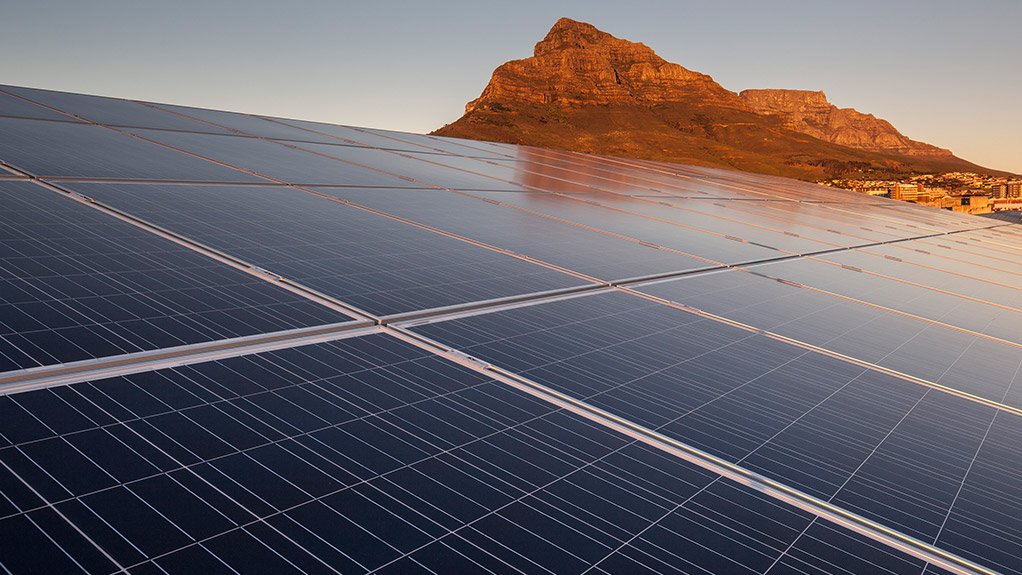The South African Renewable Energy Council (Sarec) has welcomed the conclusions of the Council of Scientific and Industrial Research’s (CSIR’s) ‘Financial benefits of renewables in South Africa in 2014’ report, published on January 21.
“The results of this study truly underline the economic value of renewable energy to the South African electricity consumer,” Sarec board member Mike Levington said on Wednesday.
The report showed that the net cost of South Africa’s renewable energy in 2014 was less than zero, with South Africa’s first wind and solar projects last year delivering R800-million more in financial benefits for the country than they cost.
The report also demonstrated that the 1 600 MW of renewable energy installed by December 2014 had saved the country R5.3-billion in diesel and coal and avoided load shedding, while costing the country only R4.5-billion in tariffs.
The study was based on actual hourly production data for the different supply categories of the South African power system, including coal, diesel, wind and solar photovoltaic (PV) energy sources.
“Government’s far-sightedness in establishing the Renewable Energy Independent Power Producer Procurement Programme (REIPPPPP) in 2011 is now yielding dividends in making a measureable contribution to easing [State-owned electricity supplier] Eskom supply problems and will contribute even more as the plants presently under construction come online on a continuous basis through 2015 and beyond,” Levington explained.
Moreover, it was expected that the preferred bidders for Round 4 would be announced soon, potentially putting another 1 100 MW of renewable energy into the pipeline to produce electricity.
Levington also pointed out that the CSIR report was based on conservative assumptions and did not factor in the job creation and socioeconomic benefits of the REIPPPP, with more than R11-billion already pledged by the industry for investment into rural communities over the next 20 years.
Stellenbosch University’s Professor Wikus van Niekerk added that renewable energy, particularly wind and PV, were “fuel-savers” and could, therefore, make a significant contribution in the current constrained period, saving Eskom and the country money.
“However, rooftop PV projects, put in place by Eskom, need to be addressed to allow even Eskom-subsidised projects to connect to the grid. A reasonable feed-in tariff for rooftop PV – lower than at the Eskom generation cost at [coal-fired power stations] Medupi and Kusile [currently under construction] – could facilitate a number of rooftop PV project to come online, still in this year,” he added.
Sarec board member Pancho Ndebele also stressed that renewable energy was the most feasible supply option that could be deployed at scale within the timeframe of the country’s severe electricity crunch.
Round 4 of the REIPPPP involved renewable-energy projects totalling 6 000 MW. “These are projects that have done all feasibility studies, received environmental and all other regulatory approvals and have been assessed by lending institutions as being financially sound.
“They are ready for implementation and will be funded by private capital at very affordable rates. Importantly, a number of these projects can be constructed and connected to the grid in 14 months to 24 months,” he added.
Meanwhile, Sustainable Energy Society of Southern Africa representative Carryn Bateman noted that rooftop solar PV was “perhaps the fastest supply-side solution available”.
Proponents of wind energy were equally enthused. South African Wind Energy Association representative Mark Tanton noted that each 0.6 GW of wind power installed saved the system real cash on a net basis, as the pure fuel savings value of wind was 0.23 R/kWh higher than the cost of the wind power produced. “If avoided load shedding is added, the value of wind power to the country is even more compelling,” he asserted.
EMAIL THIS ARTICLE SAVE THIS ARTICLE FEEDBACK
To subscribe email subscriptions@creamermedia.co.za or click here
To advertise email advertising@creamermedia.co.za or click here











